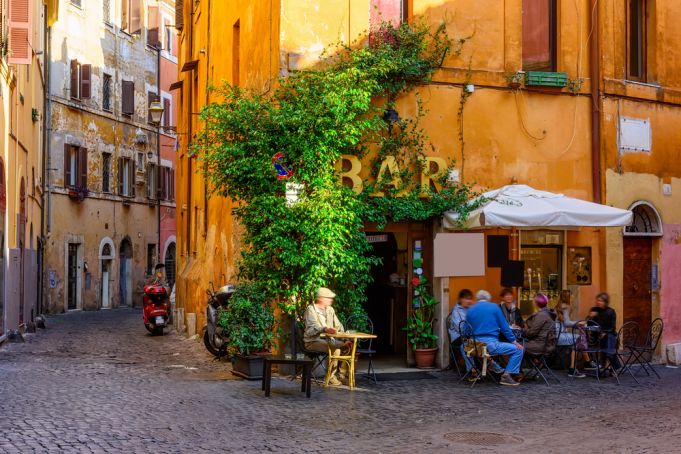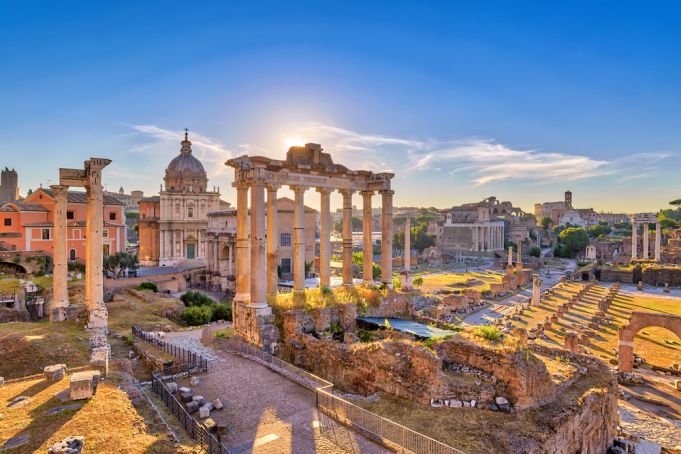Tourists returning to Rome will notice many changes when they travel to the Italian capital.
The last year and or so has taken its toll on Rome, turning a usually bustling city into what felt like a ghost town at the height of Italy's covid-19 emergency.
Thankfully things are slowly returning to some semblance of normality as the situation continues to improve and the country's covid vaccination campaign steps up a gear.
The city's first tourists are starting to trickle back, and with them the long-lost sight of travellers writing postcards and the sound of suitcase wheels bumping over the sampietrini cobblestones.
American tourists are seizing the opportunity to take covid-tested flights along with visitors from the EU keen to avail of a quarantine-free Roman holiday.
So what can visitors expect from the "new normal" in Rome?
Italy is gradually easing its once severe coronavirus restrictions, with the nightly curfew being pushed back from 23.00 to midnight on 7 June before being scrapped entirely later in the month.

The country is still operating under a colour-coded system of covid rules. Most of Italy is currently in the lower-risk 'yellow' zone, with many regions set to enter the lowest-risk 'white' zone category over the coming weeks.
For those who have been to Rome before, the most noticeable difference is the relative lack of tourists in the city compared to pre-covid times, for now at least.
Over the last few weeks restaurant tables have spilled outside, taking over whole pavements, colonising the roadside with lantern-lit decking and makeshift terraces. Bars and restaurants recently reopened for indoor service too.
However returning tourists will also be sad to see that some restaurants and bars did not survive the economic crisis inflicted by the frequent closures and restrictions over the last year.
People are still obliged to wear masks outdoors as well as indoors, including on public transport and in hotel lobbies, with social distancing rules still in place. Children under six are not required to wear masks.
Those who haven't been in Rome for more than a year will also notice the city centre appears to be flooded with electric scooters, an increasingly popular way to get around. (Try taking a photo of a landmark without a scooter in it).
The city is also pushing ahead with new bicycle lanes around the city, notably in the area around the Circus Maximus.
One advantage of visiting Rome now is the chance to enjoy the city's museums, fountains and archaeological sites minus the crowds, with the flow of visitors controlled by time slots.

Everything is booked online these days, and bear in mind that for weekend visits it is mandatory to book at least a day ahead for the Colosseum, Castel S. Angelo and the Pantheon.
It is also worth reserving well in advance for perennial favourites such as the Vatican Museums and the Borghese Gallery, the latter of which is about to open a major exhibition by Damien Hirst. The Chiostro del Bramante hosts a Banksy show.
Another knock-on effect of the pandemic has been a new focus on outdoor events.
Fellows at the American Academy in Rome are producing sculptures to display around the Janiculum Hill, from 7-17 June, while an open-air exhibition of art installations is taking place in the city's Villa Borghese park.
Cinema in Piazza, a popular outdoor film festival, kicks off on 4 June in the heart of Trastevere and two other venues.
For an unforgettable treat, the city's opera house is hosting its summer programme under the stars in the Circus Maximus, with the Palatine on one side and the Aventine on the other.
Indeed the 'piazza' has seen a new lease of life, with children playing football under the city's ancient monuments by day and adults enjoying aperitivi outdoors in the balmy summer evenings.
For full details about Italy's covid-19 protocols and guidelines, in English, see health ministry website.


















